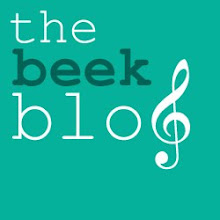 Films have been a source of inspiration to many music artists, so much so it may be something of a cliché for a solo classical musician to take on such a programme for an album release… Did I say that out loud?
Films have been a source of inspiration to many music artists, so much so it may be something of a cliché for a solo classical musician to take on such a programme for an album release… Did I say that out loud?Don’t get me wrong, I do think it’s actually a sometimes successful way of bridging the chasm that exists critically between ‘real’ classical music and that funny stuff we call ‘film music’. I think what makes Rolando Villazón’s new CD ‘La Strada: Songs from the Movies’ most grating is the horrible sticker featuring an ITV1 logo and the words ‘As featured on Popstar to Operastar’ *shudder*
Yes, Rolando is the bouffant-haired, Catapillar-browed Tenor who is – sadly – most recognised by the man on the street as ‘that bloke who critiques ‘celebrities’ trying to sing opera on the telly’. In case you hadn’t noticed, I’m not a fan of the programme… Drivel is not the word.
With that feeling in mind it’s really no wonder I gulped slightly when I was informed I could expect a copy of Villazón’s album. Joy, I thought.
The first surprise for me was that it was not a typical glossy ‘Decca Records’ tie-in release; in fact the disc is released by Decca’s serious Classical arm ‘Deutsche Grammophon’. The second came with the sight of the rather large set of media quotes on the back cover, including the one from Opera News that Villazón is in fact ‘the most talked about and sought after lyric tenor in the world’. Gosh. Thirdly I gave the disc a couple of spins and yes, you guessed it, he’s really rather good, though the selection is questionable including a few howlers.
Somehow the non-English language tracks work best with the Tenor’s broad Italian brogue in mind, so the likes of ‘Al otro lado del rio’ from The Motorcycle Diaries, ‘Gelsomina’ from La Strada and ‘Non, je ne regretted rien’ from La Vie en rose are particular highlights. The Michel Legrand standards ‘A Piece of Sky’ (from Yentl), ‘The Windmills of Your Mind’ (from The Thomas Crown Affair) and ‘The Summer Knows’ (from Summer of ’42) go some way to heal the accent issues, but mainly because the songs are just so damned good.
The howlers? ‘She’ from Notting Hill just doesn’t work, sadly, and is more than irritating, while the kiddy-friendly ditties ‘When You Wish Upon A Star’ (from Pinocchio) and ‘Rainbow Connection’ (from The Muppet Movie… yes The Muppet Movie) are very sweet, but a little too sweet for my liking; making for something of a cheeseboard of an album when all is said and done.
So, peaks and troughs then really and somewhat jarring considering how seriously it is presented by the label.
A noble concept at bringing the talented singer a wider audience, but I do think he should probably stick to what he does best.


